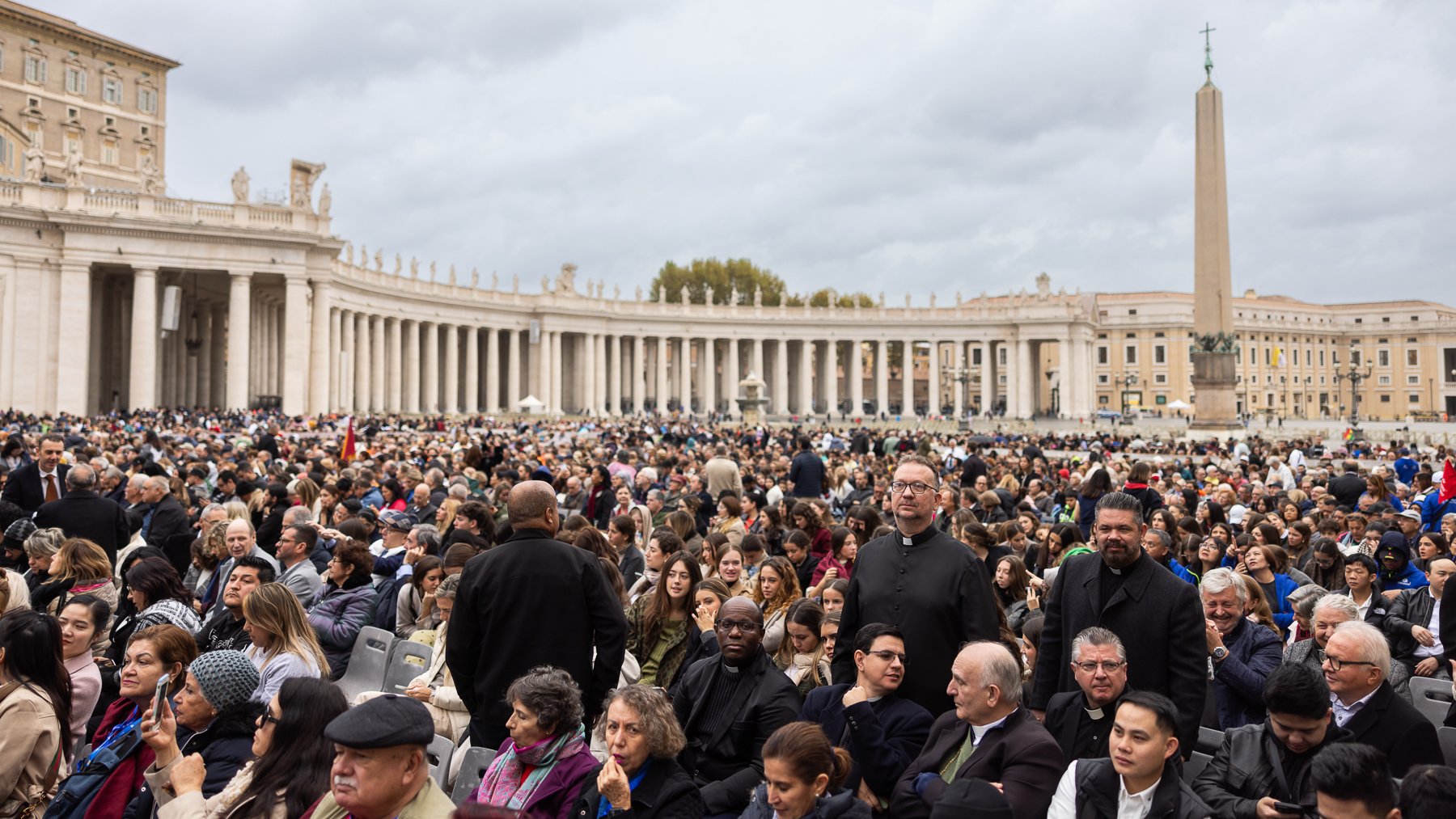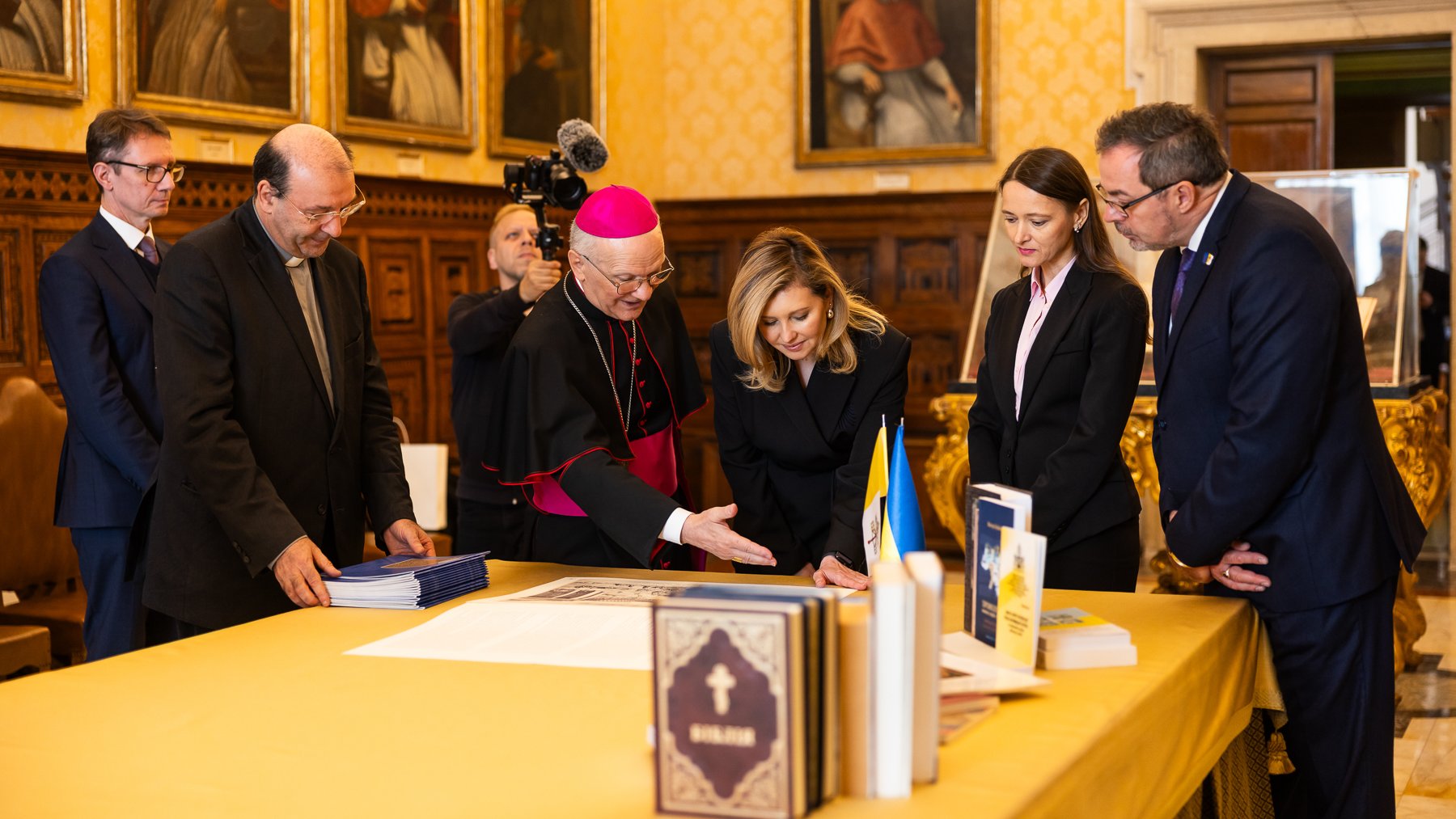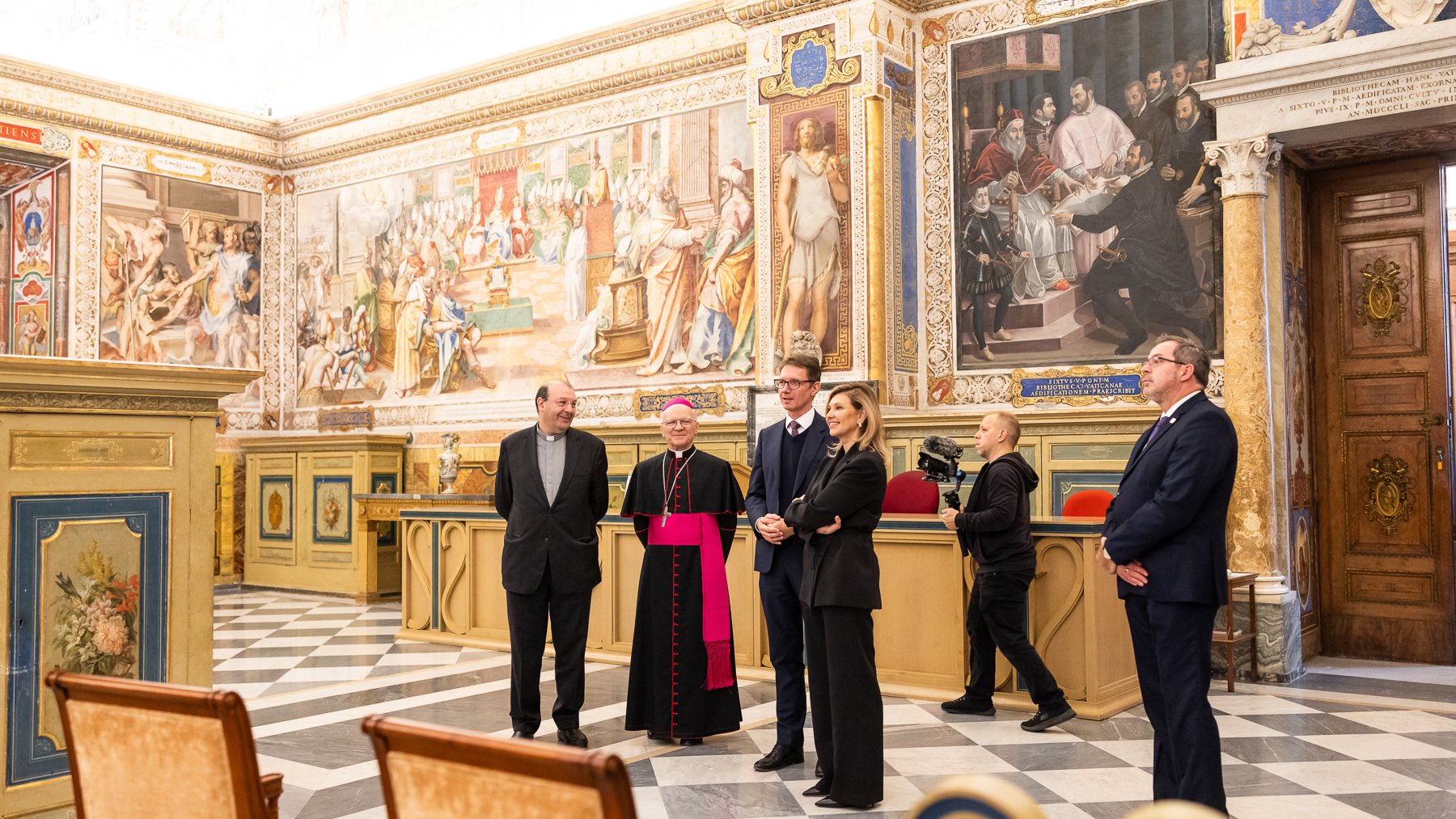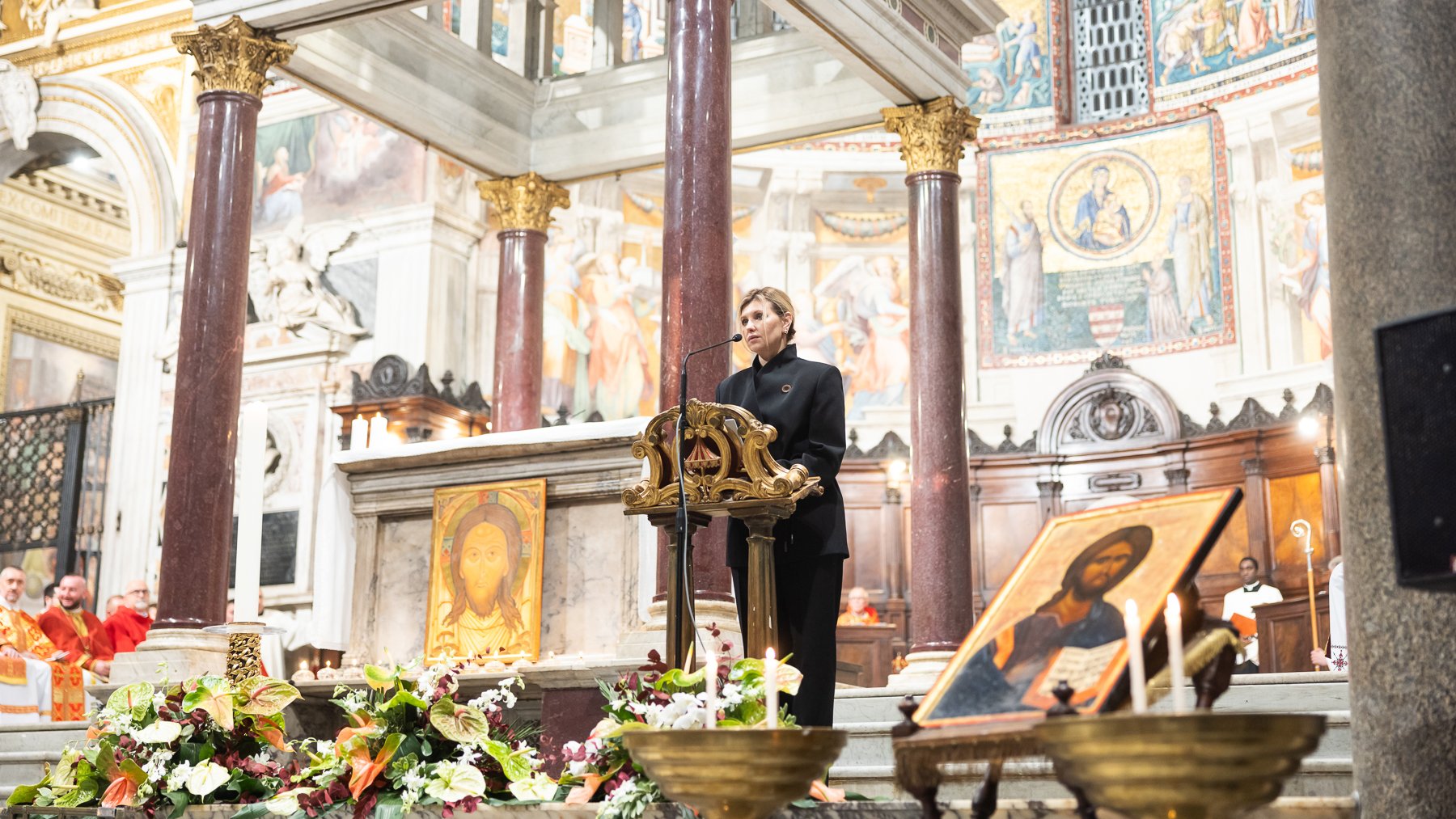(ZENIT News / Rome, 11.22.2024).- On November 20, 2024, Ukraine’s First Lady, Olena Zelenska, stood amidst the solemn beauty of Santa Maria in Trastevere in Rome. Alongside global dignitaries, including the First Ladies of Lithuania, Serbia, and Armenia, she marked a grim milestone: the 1,000th day since Russia’s invasion of Ukraine. Yet her message transcended grief, offering a defiant hope rooted in faith and humanity.
A Global Gathering for Peace
The commemorative Mass, organized by Ukraine’s Embassy to the Holy See, united voices of faith and diplomacy. Presided over by Cardinal Matteo Zuppi, the Pope’s special envoy for peace in Ukraine, the service emphasized unity and the pursuit of justice. Cardinal Zuppi, a tireless advocate for peace, used the occasion to reflect on the spiritual and moral imperative of ending the war.
Дякую колежанкам – першій леді Литви Діані Наусєдєне, Сербії – Тамарі Вучіч і Вірменії – Анні Акопян, – які на моє запрошення приєдналися до загальної аудієнції, що відбувається на площі Святого Петра щосереди. Свою участь присвячую 1000-му дню повномасштабного вторгнення, про що… pic.twitter.com/b8iXwBDjHN
— Olena Zelenska / Олена Зеленська (@ZelenskaUA) November 20, 2024
In her address, delivered in Ukrainian, Zelenska spoke from the heart: “Today, our hearts ache for daily losses, yet they remain full of faith—faith in the victory of good over evil.” Her words resonated deeply, echoing the shared pain of millions affected by the conflict.
A Meeting with the Pope
Earlier that day, Zelenska met privately with Pope Francis, whose unwavering support for Ukraine has been a beacon of hope during the war. The Pope, who publicly denounced the conflict as “a disgraceful catastrophe for humanity” during his general audience that morning, offered both spiritual solace and tangible solidarity.
In her remarks, Zelenska acknowledged his efforts: “In the Pope’s words, we find the strength to be even stronger.” She also praised Cardinal Zuppi’s humanitarian diplomacy, which has sought to bring Ukrainian prisoners, clergy, and abducted children back home.
A Legacy of Care at Bambino Gesù
Zelenska’s day in Rome also included a visit to the Vatican’s Bambino Gesù Pediatric Hospital, where she met with Ukrainian children receiving care. Since the war began, the hospital has treated childs Ukrainians and their families, embodying the spirit of compassion amid crisis.
Bearing gifts and words of gratitude, the First Lady highlighted the institution’s role in healing not just bodies, but spirits, as Ukraine’s youngest citizens navigate the trauma of war.
“We Will Not Leave You Alone”
The emotional weight of the day culminated in the Mass, where Ukrainian Ambassador to the Holy See, Andrii Yurash, underscored the significance of shared values between Ukraine and the Vatican.
“No leader or spiritual authority has spoken of Ukraine more often during these tragic 1,000 days than Pope Francis,” Yurash declared. He expressed hope for a future grounded in faith, justice, and freedom—a vision mirrored by Cardinal Zuppi in his homily.
Особлива меса в римській базиліці Санта-Марія-ін-Трастевере, присвячена 1000-му дню українського протистояння російському повномасштабному вторгненню. Вдячна за її проведення Маттео Дзуппі – спецпредставнику Папи Римського Франциска з питань повернення 🇺🇦 дітей і полонених. Дякую… pic.twitter.com/kVN51J88iC
— Olena Zelenska / Олена Зеленська (@ZelenskaUA) November 20, 2024
“Peace is never weakness,” Zuppi stated. “It is strength, especially when anchored in a credible and enduring framework.” He closed with a powerful commitment: “We will not leave you alone.”
A Testament to Resilience
Zelenska’s presence in Rome symbolized Ukraine’s enduring resolve and its reliance on faith and global solidarity. As she walked through the halls of the Vatican, visited Ukrainian cultural landmarks, and stood before the faithful in Santa Maria in Trastevere, her message was clear: Ukraine’s struggle is not just a battle for territory, but a fight for humanity’s higher ideals.
As the world reflects on the thousand days since the invasion began, her words serve as both a lament and a rallying cry: “Ukraine seeks a just and lasting peace—one that ensures no child is forgotten, no family is abandoned, and no hope is extinguished.”
Thank you for reading our content. If you would like to receive ZENIT’s daily e-mail news, you can subscribe for free through this link.















